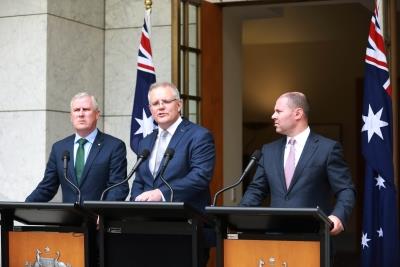Canberra: Australia Thursday recorded its deadliest day of the COVID-19 pandemic so far, with 13 new deaths and a record 744 confirmed cases.
With the new tallies, the total number of coronavirus cases in the country stood at 16,303, with 189 deaths.
Victoria recorded 723 of Thursday’s positive tests, taking the total number of active cases within the worst-hit state to over 5,500, reports Xinhua news agency.
Victoria Premier Daniel Andrews said that wearing a face mask would become mandatory across the state as of midnight Sunday, expanding on rules already in place for capital city, Melbourne.
“It’s inconvenient, it’s challenging, but … it’s something we can do in regional Victoria without causing significant economic cost, but getting a really significant public health benefit,” Andrews said.
Government officials also imposed bans on gatherings across six high-risk localities in Victoria, prohibiting residents from hosting guests or attending weddings and funerals.
Residents are, however, still allowed to attend bars and restaurants, with Andrews explaining that the primary focus and goal of the new restrictions were to stem family-to-family transmissions.
Meanwhile, Australia’s most populous city, Sydney was declared a COVID-19 hotspot by Queensland state Premier Annastacia Palaszczuk, barring anyone who has visited the city in the previous two weeks.
Unlike Victoria, Sydney’s world renowned hospitality venues were at the centre of its recent spike in cases, with several newly emerged clusters at eastern suburb eateries.
The largest clusters were of 89 cases linked to a Thai restaurant and 57 at a pub in the city’s west.
Health experts have pointed out that Sydney’s situation resembles that of Melbourne roughly a month ago, before case numbers quickly spiralled out of control.
Queensland Chief Health Officer Jeanette Young warned residents of her state to avoid travelling to Sydney for the time being, with those that do required to quarantine in a hotel for two weeks upon their return.
“Really reconsider if you need to go anywhere in New South Wales, and particularly don’t go to greater Sydney,” she said.
IANS
